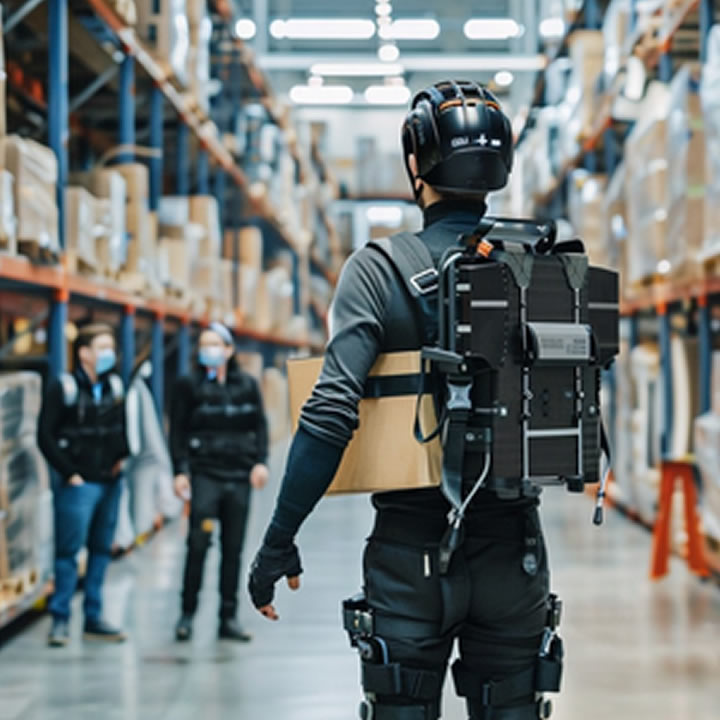The world of cinema has long been a source of inspiration for technological advancements. Many ideas presented in science fiction films have sparked the imagination of inventors and engineers, eventually becoming real-world innovations.
This article explores how concepts from futuristic movies have influenced the development of tracking technologies in logistics and parcel delivery, and how these cinematic visions have transitioned from fiction to reality.
The Influence of Science Fiction on Technology
Science fiction has always pushed the boundaries of what is possible, presenting audiences with visions of the future that challenge our understanding of technology.
Films like “Blade Runner,” “Minority Report,” and “The Fifth Element” have depicted advanced tracking systems and logistical solutions that seemed far-fetched at the time of their release. However, many of these concepts have since been realized, transforming the logistics industry.
Early Inspirations: From GPS to RFID
One of the earliest inspirations from cinema came from the concept of global positioning systems (GPS).
Although the idea of a satellite-based tracking system was first introduced in military and space exploration contexts, it was popularized by movies such as “Star Trek” and “2001: A Space Odyssey.”
These films showcased the potential of GPS technology, leading to its widespread adoption in civilian applications. Today, GPS is an integral part of tracking systems used in logistics, allowing for precise location tracking of parcels and shipments.
Radio-frequency identification (RFID) is another technology that found its roots in science fiction. The use of RFID tags for tracking objects was depicted in several futuristic films, where characters could locate items or people through embedded chips.
This concept has become a reality, with RFID now commonly used in supply chain management to track inventory and shipments, providing real-time data and improving efficiency.
Advanced Tracking Systems: Learning from Hollywood
As tracking technologies evolved, Hollywood continued to offer glimpses of even more advanced systems. In “Minority Report,” the use of biometrics for tracking and identification was a central theme.
The film’s depiction of eye-scanning technology has since influenced the development of biometric systems used in security and tracking. Modern logistics companies now utilize biometric scanners for secure access and verification, enhancing the security of tracking systems.
“The Fifth Element” presented a world where parcels and deliveries were managed by a highly automated and interconnected network.
The film’s vision of smart logistics, where packages are tracked and delivered with pinpoint accuracy, has inspired the development of modern delivery drones and automated sorting systems.
These technologies have revolutionized the logistics industry, making it possible to track and deliver parcels more efficiently than ever before.
Real-World Applications: Transforming Logistics
Today, the influence of science fiction on tracking technologies is evident in the advanced systems used by logistics companies. Real-time tracking, automated sorting, and delivery drones are just a few examples of how cinematic ideas have become practical solutions.
One significant advancement is the use of blockchain technology for tracking and verifying shipments.
Inspired by the concept of secure and transparent transactions depicted in films like “Inception,” blockchain provides an immutable record of a parcel’s journey, ensuring transparency and reducing fraud.
Another real-world application is the integration of Internet of Things (IoT) devices in logistics. Movies such as “Iron Man” showcased the potential of interconnected devices that communicate seamlessly.
This concept has been realized through IoT, where sensors and smart devices monitor and report the status of shipments in real time. This technology allows for proactive management of logistics, identifying potential issues before they become problems and ensuring timely deliveries.
Modern Tracking Platforms
Today, modern tracking platforms offer unprecedented capabilities, reflecting the technological advancements inspired by science fiction. Platforms like PitneyBowesTracking provide users with comprehensive tracking solutions.
These platforms enable customers to monitor their parcels in real time, receive updates on the status and location of their shipments, and access detailed information about the delivery process.
By leveraging advanced tracking technologies, these platforms ensure transparency and reliability, making it easier for customers to manage their shipments and address any issues promptly.
Challenges and Future Directions
Despite the significant advancements in tracking technologies, challenges remain. Ensuring data security and privacy is a major concern, as tracking systems often handle sensitive information.
The logistics industry must continue to develop robust security measures to protect against cyber threats. Additionally, integrating new technologies into existing infrastructure can be complex and costly, requiring ongoing investment and innovation.
Looking ahead, the future of tracking technologies will likely involve even greater automation and integration.
Concepts such as autonomous delivery vehicles, advanced AI algorithms for predictive analytics, and further enhancements in blockchain and IoT applications are on the horizon.
As these technologies develop, they will continue to transform the logistics industry, making parcel tracking more efficient and reliable.
The Lasting Impact of Cinematic Vision on Real-World Innovation
The enduring influence of science fiction on technology is a testament to the power of imagination and creativity. Films have not only entertained audiences but also inspired generations of innovators to push the boundaries of what is possible.
In the realm of tracking and logistics, the visionary ideas presented in cinema have become tangible advancements, revolutionizing the way we manage and track shipments.
As we look to the future, the continued interplay between fiction and reality will undoubtedly drive further innovations, shaping the logistics industry for years to come.

